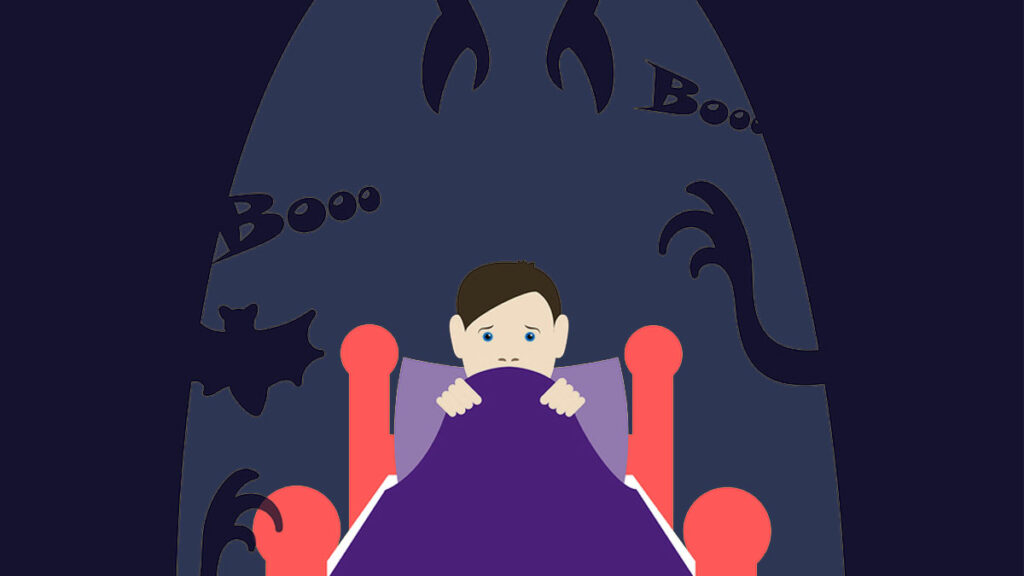PANDAS (pediatric acute-onset neuropsychiatric syndrome) is a rare but serious disorder that can cause severe anxiety, disruptive behavior, and psychotic symptoms in children and adolescents. If you or your child have been diagnosed with PANDAS, it’s important to know all about the symptoms, diagnosis, and treatment. Read this article to know about the PANDAS symptoms.
Contents
What Is PANDAS Disorder?
 PANDAS Disorder is a condition that is caused by a bacterial infection of the brain. It is most commonly diagnosed in children and young adults, but it can also occur in adults. Symptoms of PANDAS Disorder can include a sudden onset of repetitive behaviors (e.g., obsessive-compulsive symptoms, tics, or tantrums) that are out of character for the person and interfere with daily life activities.
PANDAS Disorder is a condition that is caused by a bacterial infection of the brain. It is most commonly diagnosed in children and young adults, but it can also occur in adults. Symptoms of PANDAS Disorder can include a sudden onset of repetitive behaviors (e.g., obsessive-compulsive symptoms, tics, or tantrums) that are out of character for the person and interfere with daily life activities.
This disorder is sometimes called PANDAS-like disorder, PANDAS-spectrum disorder, or pandemic obsessive-compulsive disorder.
What Are The Symptoms of PANDAS?

PANDAS is a disorder that primarily affects the brain and nervous system. It’s caused by a virus, which can cause severe behavioral changes in children.
The name “PANDAS” comes from the Greek words pan (all) and das (suffering). The disorder was first identified in 2002, but it wasn’t until 2013 that scientists figured out how to treat it.
Symptoms of PANDAS typically develop over several days or weeks but can vary a lot from person to person. The most common symptoms are:
Sudden Change In Behavior
In general, children with PANDAS will start to experience sudden changes in their behavior, including an increased need for attention and a sudden lack of interest in typical activities. They may also become extremely irritable and have trouble sleeping. Finally, they may develop unusual muscle movements, such as twitching or uncontrolled spasms.
Restlessness or Irritability
Many children with PANDAS experience restlessness and irritability. These symptoms may worsen during times of stress, such as during a school routine change or when a loved one is unavailable. Children may be fidgety or hard to calm down. They may also become easily frustrated or angry.
Insomnia or Difficulty Sleeping
When someone has PANDAS, their body is over-reacting to a common virus. The virus causes the person’s immune system to mistakenly attack the person’s brain and spinal cord. This can cause a wide range of symptoms, including trouble sleeping. Symptoms of PANDAS may include: difficulty falling asleep or staying asleep waking up often during the night feeling restless or anxious during the night decrease in the amount of sleep you get each night change in your normal sleep patterns, such as oversleeping in the morning or feeling exhausted after waking up early.
In some cases, people with PANDAS also experience tics or Tourette syndrome-like episodes that occur during rest periods (such as when they are sitting still). These episodes can range from mild twitching to more serious motor tics (such as pounding fists or kicking feet), vocal tics (such as making unusual sounds), and seizures.
Aggression or Impulsiveness
Symptoms of PANDAS can include an increase in aggression or impulsiveness. Individuals with PANDAS may be more likely to act on their impulses quickly and without thinking, which can lead to problems like violence or vandalism.
Negative Impacts of PANDAS Symptoms

There are a few potential negative impacts of PANDAS symptoms. First, behavior problems can affect the child’s ability to learn and grow. Second, PANDAS can cause seizures in some children. Third, PANDAS can lead to blindness in some cases. Finally, PANDAS can cause death in very rare cases.
1. Difficulties in School. Children with PANDAS may have difficulty staying on schedule and may struggle to pay attention in class. This can lead to a decreased ability to learn and increased confusion.
2. Social Rejection. People with PANDAS may experience social rejection from friends and family members. This can make it difficult for them to interact with others and can lead to feelings of isolation.
3. Increased Anxiety and Depression. People with PANDAS may experience an increase in anxiety and depression, which can lead to further difficulties in school and social interactions.
4. Lost Jobs and Income. The symptoms of PANDAS can impact a person’s job performance and income, making it difficult to maintain a normal life. There may also be a stigma attached to having PANDAS, which can make it even more difficult to live a normal life.
5. Blindness. In rare cases, PANDAS can lead to blindness. This is a serious disability that can make everyday activities challenging.
Treatment of PANDAS Symptoms

There is no one-size-fits-all approach to treating PANDAS symptoms, as the severity and nature of each individual’s symptoms will vary. However, common treatments for PANDAS include:
Rest: While PANDAS is usually characterized by a persistent, overwhelming sense of anxiety or dread, many sufferers find relief from relaxation techniques such as yoga or deep breathing exercises.
Medications: Antidepressants are often prescribed to help relieve anxiety and depressive symptoms, as well as improve sleep quality. Some people also find relief from over-the-counter medications such as ibuprofen or paracetamol. Occasionally, people will require prescription medications such as clonidine or risperidone to treat their PANDAS symptoms effectively.
Mindfulness therapy: This type of therapy focuses on developing awareness of feelings and thoughts in the present moment, as well as learning how to manage stress effectively. Clinical trials have shown that mindfulness therapy can be helpful for individuals with PANDAS, and it may be one of the most effective treatments available.
Tips To Keep In Mind While Dealing With PANDAS Symptoms

There is still much unknown about PANDAS. However, there are treatments available that can help improve the symptoms of this disorder. Here are some tips on how to treat PANDAS:
1) Get a diagnosis: It’s important to get a proper diagnosis of PANDAS if you think your child may have the disorder. Make sure to schedule an appointment with your pediatrician to discuss your child’s symptoms and see if he or she meets any of the listed diagnostic criteria for PANDAS.
2) Treat the symptoms: The main goal of treatment for PANDAS is to improve the symptoms of the disorder. This can involve medication, therapy, or a combination of both. Some common treatments for PANDAS include antipsychotic drugs, antidepressants, and stimulants. It is important to talk to your pediatrician about which treatment options are best for your child.
3) Support your child: The entire family should also help in treating PANDAS. This includes parents, guardians, and siblings. Supportive care can help improve the overall quality of life for children with PANDAS.
If you are worried about your child and think he or she might have PANDAS, it is important to seek out a proper diagnosis and treatment. Remember to talk to your pediatrician about any concerns you have.
Prevention of PANDAS Symptoms
Prevention of PANDAS is always the best course of action. Here are some tips to help you keep your loved ones safe from this disorder:
1. Don’t Panic: It may seem like everything is happening at once, but panic won’t help. Control your emotions and stick to a routine to minimize stress.
2. Seek Professional Help: If you or your loved one is showing any unusual symptoms, please seek professional help immediately. A mental health professional can help you manage your anxiety and identify any changes in behavior that may be of PANDAS Disorder.
3. Avoid Triggers: One of the key goals of prevention is to avoid the triggers for PANDAS. If you think you might have a trigger, avoid exposure to the substance or situation as much as possible until you can consult with a mental health professional.
4. Get Vaccinated: Another way to prevent PANDAS is by getting vaccinated against the viruses that can cause it – shingles and chickenpox, for example. Furthermore, Some people with PANDAS find that taking antiviral medications helps lessen their symptoms.
Conclusion
If you or a loved one is experiencing symptoms such as fever, diarrhea, seizures, and extreme mood swings, it’s important to see a doctor as soon as possible. PANDAS (pediatric acute-onset neuropsychiatric syndrome) is an autoimmune disorder that can cause serious health problems in children and can be difficult to diagnose. If left untreated, PANDAS may result in long-term psychiatric problems for the child. If you are concerned that your child might have PANDAS, please seek out help from your pediatrician or neurologist.
Hope this article was of help to you! If you are suffering from PANDAS, you may seek help from Therapy Mantra. We have a team of highly trained and experienced therapists who can provide you with the tools and skills necessary for overcoming PANDAS. Contact us today to schedule an online therapy or download our free OCD treatment app on Android or iOS for more information.


